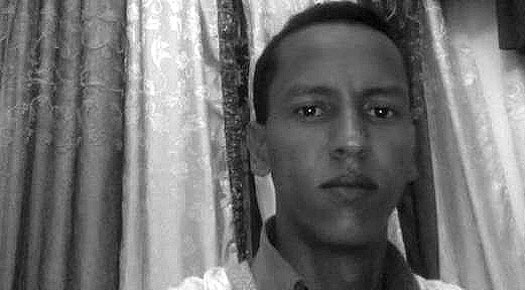
Mauritania recently delivered its first death sentence for apostasy since gaining independence in 1960. On December 24, capital punishment was handed down to a Muslim man, who apparently wrote a blasphemous article against Islam. Reportedly, 28-year-old Mohamed Cheikh Ould Mohamed, fainted in a court in Nouadhibou, as his sentence was read out. He was revived immediately, however, and taken to prison.
Mohamed had been in custody since January, 2014, after being arrested for writing an article titled “Religion, Religiosity and Craftsmen” that appeared briefly on a couple of Mauritanian websites. Reportedly, the text of his article criticized some of the decisions made by the Prophet and his clan during the Holy Wars, which Mohamed perceives as being circumstantial. In his article, Mohamed also spoke of an iniquitous social order that has been perpetuated in Mauritania, with an underclass that continues to be marginalized and discriminated against from birth, a class that he believes he belongs to.
During his trial, Mohamed was accused of apostasy for speaking insincerely about the Prophet, to which the defendant pleaded guilty, saying his intention was not to harm the prophet.
According to local Islamic clerics, this was the first time that any text critical of Islam had been published in Mauritania.
Jemil Ould Mansour, leader of the moderate Islamist party, Tewassoul, said the following day, “This is the story of a criminal who got the fate he deserved.”
Mauritania abides by the stringent Islamic law, known as Sharia, but it has never before meted out the harshest punishments provided by the law, including floggings and executions.
Mohamed’s court-appointed lawyers sought leniency on the basis that their client was truly repentant for what he had done but the judge presiding over the case agreed to the prosecutor’s request for a death penalty, saying Mauritania’s criminal statutes call for capital punishment for any Muslim that has denounced Islam explicitly or through words and actions. The court’s verdict was met with shouts of joy from the public gallery, as revelers celebrated on the streets.
In January 2014, after Mohamed’s article appeared across a couple of Mauritanian websites, hundreds and thousands of protesters demonstrated outside the Presidential Palace to express their fury against the journalist. President Mohamed Ould Abdel Aziz, at that time, calmed the protesters by telling them he would do all it took to defend Islam and the Prophet.
“Islam is above everything, above democracy and freedom,” he had said.
On December 26, the Committee to Protect Journalists (CPJ) condemned Mohamed’s death sentence.
“We call on authorities in Mauritania not to carry out this sentence,” said Sherif Mansour, CPJ's Middle East and North Africa program coordinator. “Mohamed Cheikh Ould Mohamed should be freed and his safety protected.”
New reports did not clarify if Mohamed would appeal at Mauritania’s Supreme Court. If he does choose to do so, he may be pardoned upon proving he truly repents for what he has done, under Article 306 of the country’s penal code.
Photo Credits: The News, Nigeria
